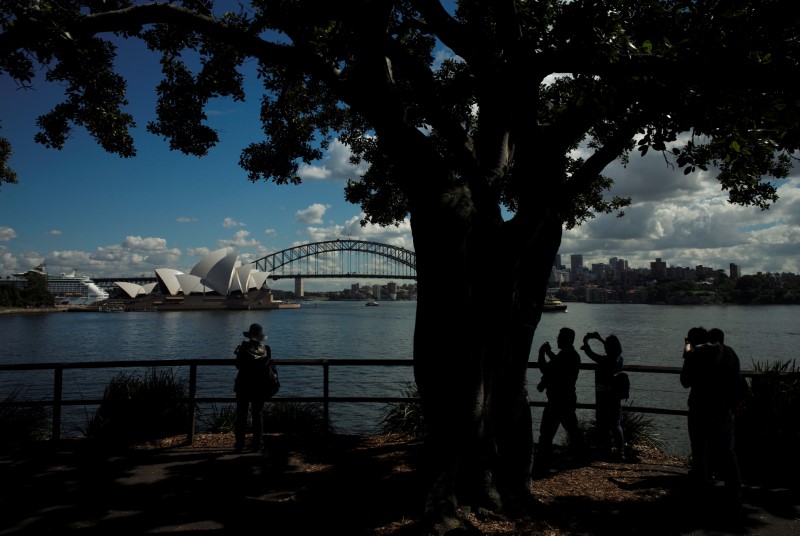By Alison Bevege
SYDNEY, Oct 1 (Reuters) - Australia's real estate industry is hoping recent rule changes for foreign buyers haven't dimmed Chinese appetites too much, as they eagerly awaited an influx of big-spending tourists during China's Golden Week holiday beginning on Sunday.
Chinese vacationers, six million of whom traveled overseas during last year's Golden Week, have become increasingly important to Australia. the year through June they accounted for almost a quarter of the $31.8 billion spent by foreign holiday makers in the country, while only accounting for less than one-sixth of the total number of vistors.
As Golden Week began on Sunday, Australia's real estate agents prepared to roll out the red carpet for cashed-up Chinese visitors, offering them helicopter rides and limousine tours to show off prestige properties in the A$10 million to A$25 million range.
Michael Pallier, managing director of Sydney Sotheby's International Realty, said just a few deals stemming from Golden Week alone could translate to A$40 million ($31.33 million) in sales for his business as people who have flown in to visit family take a look at property while they are in the country.
Pallier, who wines and dines Chinese investors and chauffeurs them round in a Rolls Royce (LON:RR) Phantom, said tax increases and rule changes aimed at restricting foreign buyers had made the market more difficult.
"There's not the amount of activity say from two years ago because of what's happened," Pallier told Reuters.
Australia's two most populous states, New South Wales and Victoria, have this year increased their surcharges on home sales for foreign investors, while the national government announced fines for foreign owners who leave properties vacant for at least six months of the year. estate agents reported an instant response from Chinese investors. Guppy, president of the Australia China Business Council Northern Territory said China's new capital controls restricting overseas investment meant Australia had to compete harder.
"If it's difficult to get your money out then you'll go to places where it's easier to spend, and Australia is no longer on that list," he told Reuters by phone on Sunday.
Chinese travelers, who spent $261 billion overseas last year, are also increasingly opting for 'staycations' and making more holiday trips within China. ($1 = 1.2767 Australian dollars) (Editing by Simon Cameron-Moore)
